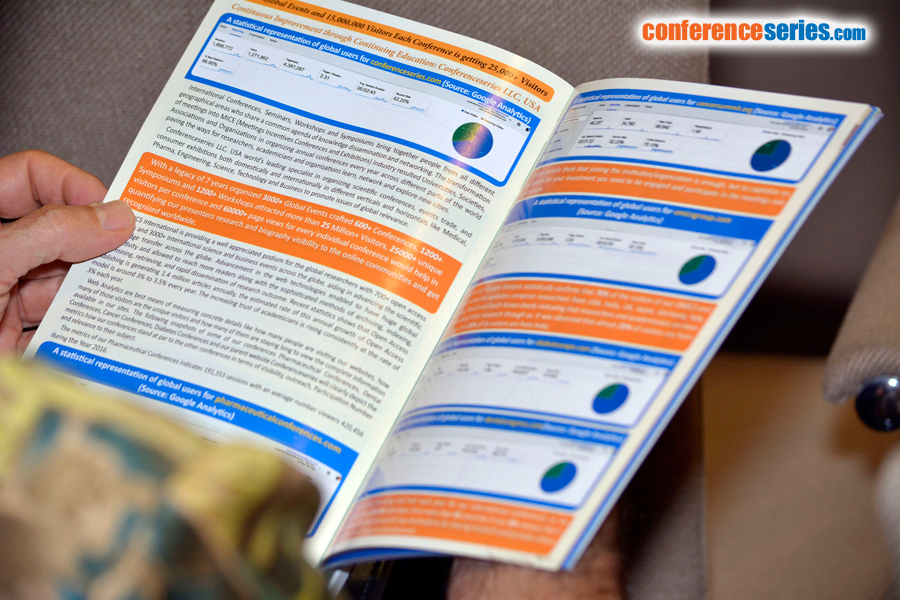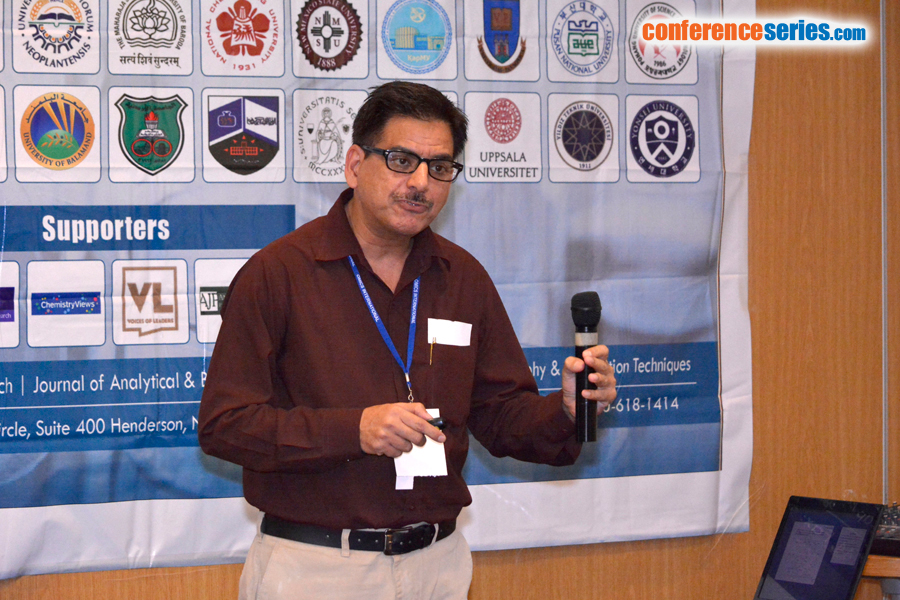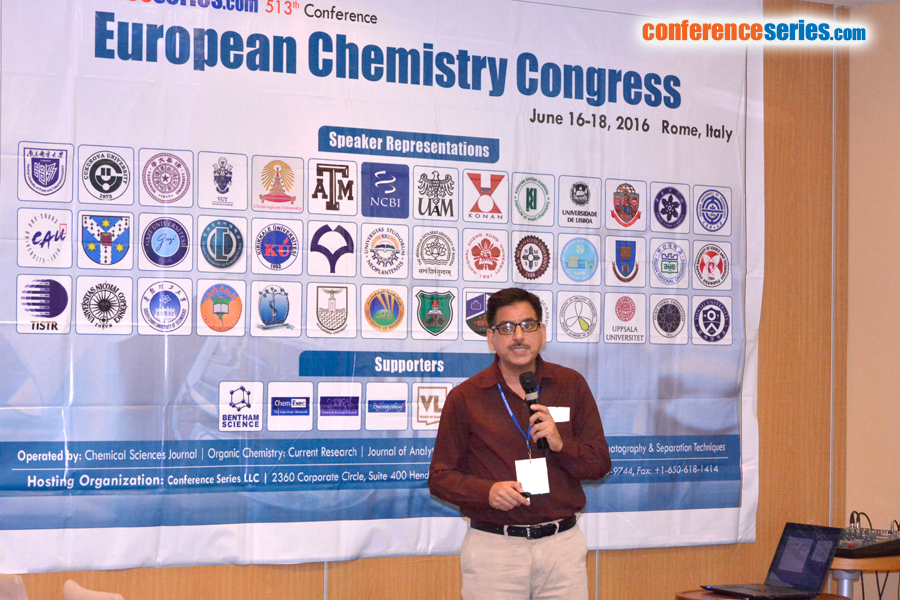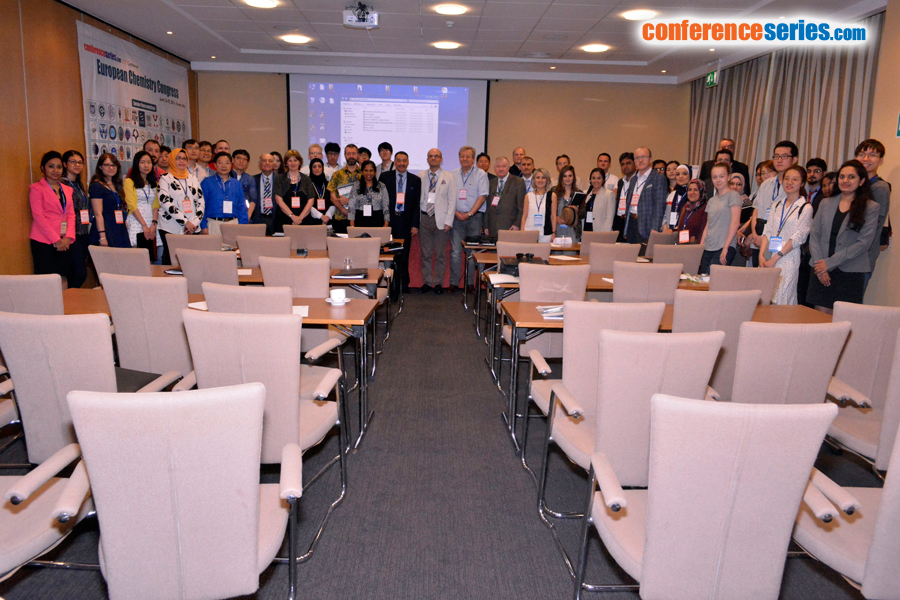
Arif Ali Khan
Guru Gobind Singh Indraprastha University, India
Title: Electrophilic phosphinidene complex affords novel organophosphorus compounds
Biography
Biography: Arif Ali Khan
Abstract
Phosphinidenes are phosphorus analogue of carbenes. Phosphinidene tungsten pentacarbonyl complexes are extremely unstable, highly reactive and could be generated in-situ only. These intermediates could be trapped easily in presence of various reagents containing π-systems to afford a number of P-heterocycles1. A number of compounds are known to give phosphinidene intermediates but 2H-azaphosphirene tungsten pentacarbonyl complex (1) is the most stable precursor for the in-situ generation of terminal phosphinidene complexes (2). Recently, we found that terminal phosphinidene tungsten pentacarbonyl complexes (2) reacted efficiently with the reagents containing no π-systems. For example, a reaction of terminal phosphinidene complex (2) with CCl4 resulted in halogen atom transfer2 from carbon to phosphorus. Following these results we run a few reactions of (2) with substrates containing a single carbon-halogen bond like RX (C6H5CH2 or Me; X= Cl, Br or I) and in all cases only a single prochiral product was formed selectively as a result of the insertion-reaction of phosphinidene complexes (2) into a carbon-halogen bond3-5. This is the first example where terminal phosphinidene complexes (2) have shown insertion reactions into carbon-halogen bonds giving interesting novel route for one step selective synthesis of prochiral organophosphorus compounds.






